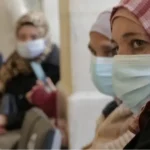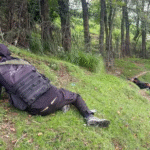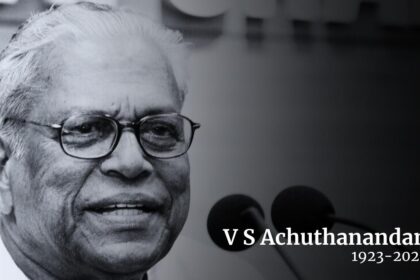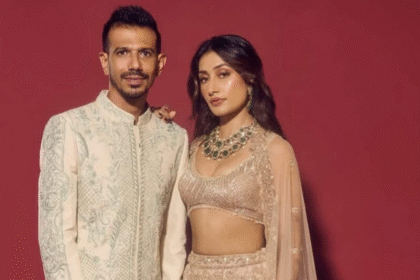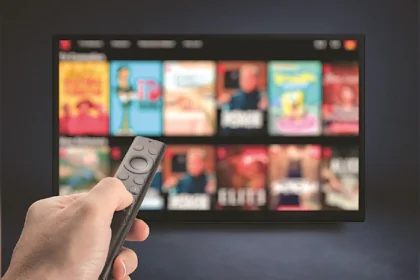After Hrithik Roshan’s Son Hridaan, Akshay Kumar’s Niece Naomika Saran Mobbed by Paps in Mumbai — 5 Shocking Reactions as Netizens Slam ‘Harassing’ Behaviour
After Hrithik Roshan’s son Hridaan, Akshay Kumar’s niece Naomika Saran faces a paparazzi mob in Mumbai. Netizens call out 5 shocking instances of ‘harassing’ behaviour caught on camera
In a disturbing trend that has reignited the debate over celebrity privacy in India, Akshay Kumar’s niece, Naomika Saran, recently became the latest victim of aggressive paparazzi attention in Mumbai. The incident, which unfolded just days after a similar episode involving Hrithik Roshan’s son, Hridaan, has sparked an online storm, with netizens condemning the behaviour as intrusive and “harassing.”

The growing criticism underscores the fine line between public curiosity and personal space, particularly when it comes to the younger, often non-celebrity, family members of Bollywood stars.
On a bustling weekday evening in Mumbai, Naomika Saran — the daughter of Twinkle Khanna’s sister Rinke Khanna — was spotted exiting a popular Bandra restaurant. Within seconds, she was surrounded by a swarm of photographers, each vying for the perfect shot.
Eyewitnesses report that the paps closed in so quickly that Naomika appeared visibly startled, struggling to navigate through the crowd. Some videos circulating online show camera flashes going off mere inches from her face, as she tried to maintain composure while making her way to her car.
While Naomika did not verbally lash out, her body language reflected discomfort. Social media users later pointed out that she looked “cornered” and “trapped” — feelings echoed by many other celebrity family members in similar situations.
The timing of this incident makes it all the more significant. Just last week, Hrithik Roshan’s teenage son Hridaan was also mobbed by photographers outside a Mumbai multiplex. That episode drew widespread criticism for targeting a minor in an aggressive manner, especially since Hridaan has largely stayed away from the limelight.

The two back-to-back events have drawn attention to an escalating pattern — paparazzi showing little restraint when photographing celebrity children, nieces, nephews, and other family members who are not active in the entertainment industry.
While celebrities in India often accept media attention as part of their profession, their non-public figure family members occupy a much more vulnerable position. Unlike actors or influencers who willingly court publicity, these individuals rarely seek media exposure and often lack the protective infrastructure that stars use to manage the press.
The aggressive tactics seen in both Naomika’s and Hridaan’s cases highlight a larger ethical concern: Should there be a code of conduct for paparazzi, especially when dealing with minors or private citizens connected to public figures?
In several countries, including the U.S. and U.K., there have been legal measures introduced to protect children of celebrities from invasive photography. India, however, currently lacks such enforceable guidelines, leaving the matter largely dependent on the discretion of photographers and media outlets.
Following the release of the videos on Instagram and X (formerly Twitter), social media was flooded with opinions. While some defended the paparazzi as “just doing their job,” the overwhelming sentiment was one of disapproval.
Here are five of the most notable reactions:
Calls for Boundaries:
Users demanded that photographers maintain at least a few meters’ distance, especially from young women and teenagers. “This is not reporting, this is harassment,” one Instagram comment read.
Comparison to International Norms:
Many netizens referenced Hollywood’s strict no-photo policies for celebrity children in certain public spaces. “If the West can protect their minors, why can’t we?” questioned one user.
Highlighting Gendered Discomfort:
Several women pointed out the heightened vulnerability of young women being cornered by male photographers. “Imagine being a 20-year-old girl surrounded by flashing cameras and strangers blocking your path,” one tweet said.
Appeals to Celebrities for Action:
Some fans urged Akshay Kumar and Twinkle Khanna to issue a public statement or even take legal action to discourage such incidents in the future.
Boycott Threats to Media Outlets:
A section of the public vowed to unfollow and boycott entertainment portals that published such intrusive videos, arguing that consumption fuels the problem.
Naomika Saran, though closely related to Bollywood royalty, has not pursued acting or modelling. Until now, she has maintained a low profile, occasionally appearing in family photos shared on social media by Twinkle Khanna or Rinke Khanna.
The sudden thrust into viral attention raises concerns about the unwanted pressures faced by celebrity family members:
Social Media Scrutiny: Even one viral moment can result in thousands of followers, unsolicited messages, and online trolling.
Loss of Public Anonymity: Everyday activities — dining out, shopping, meeting friends — risk becoming public content.
Emotional Stress: Navigating fame without preparation can trigger anxiety or social discomfort.
India’s paparazzi scene has transformed dramatically over the past decade. Once limited to film premieres and promotional events, it now thrives on everyday celebrity sightings. Restaurants, gyms, airports, and even private residences have become hunting grounds for viral clicks.
The stakes are high — a single candid shot of a celebrity or their family can generate millions of online views, translating to advertising revenue for media outlets. This click-driven economy often incentivizes more aggressive tactics, even at the expense of personal boundaries.
Several Bollywood personalities have previously spoken against such practices:
Anushka Sharma and Virat Kohli have repeatedly requested privacy for their daughter, Vamika, even issuing statements to the press.
Saif Ali Khan and Kareena Kapoor Khan have asked photographers to avoid hounding their children outside school and extracurricular classes.
Amitabh Bachchan has written on his blog about the ethics of media intrusion into personal spaces.
If incidents like Naomika’s continue, it’s possible more celebrities will band together to demand formal rules or even push for legal intervention.
Experts suggest a mix of self-regulation and policy change to address the issue:
Media Guidelines: Entertainment portals could adopt internal rules about photographing minors and non-public family members.
Designated Pap Zones: Cities could create specific spaces where paps can shoot celebrities without obstructing public movement.
Awareness Campaigns: Celebrities and influencers could use their platforms to educate fans about the impact of invasive media behaviour.
Public Accountability: Viewers can choose to avoid consuming intrusive content, cutting off the demand that drives aggressive paparazzi culture.
Read Also : Parliament Monsoon Session 2025 Highlights — 10 Key Takeaways as Lok Sabha Adjourns Till August 11



